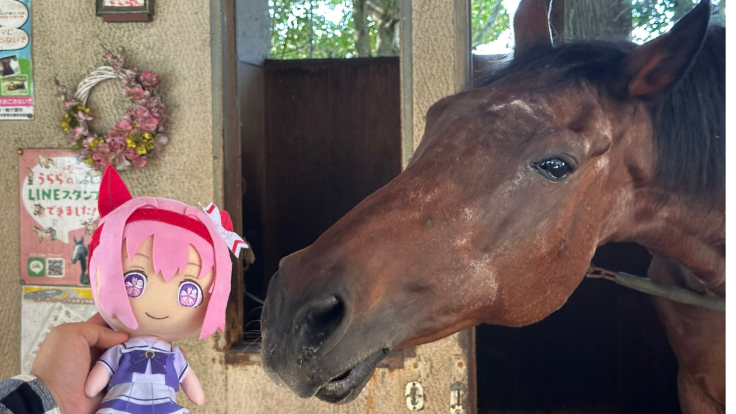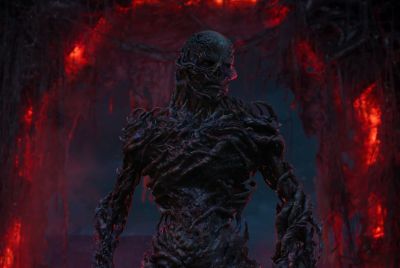RIP Haru Urara: What Killed the Japanese Horse Who Became a Symbol of Perseverance and Tenacity?
A Martha Farm representative confirmed what caused the horse's death.

Haru Urara, the retired Japanese racehorse once celebrated as the 'shining star of losers everywhere', has died at the age of 29.
She passed away earlier today at Martha Farm in Chiba Prefecture, where she had spent her final years surrounded by caretakers and devoted fans.
Though she never won a single race, Haru Urara's underdog spirit captured the nation's imagination and turned her into a cultural icon, inspiring millions in Japan and abroad.
Her death marked the end of a life that proved resilience and hope can shine brighter than victory.
Haru Urara Dies at 29
According to The Straits Times, Haru Urara's death was linked to colic, a severe intestinal condition that often proves fatal for horses.
On Monday, she displayed signs of illness, prompting her caretakers to call a veterinarian. Staff stayed close to her through the night.
#umamusume fans
— Pyrrhixz (@Pyrrhixz) September 9, 2025
Very sad news this morning
Haru Urara has passed away due to colic. We just experienced the loss of Grass Wonder, but these back to back passings really hits me hard…
Rest in peace Haru, you brought so many of us joy in the short time we’ve we’ve known you pic.twitter.com/jqXj4WkASD
By dawn on Tuesday, her condition deteriorated suddenly and she passed away. Caretaker Yuko Miyahara from Martha Farm told Friday Digital: 'Haru Urara was 29 years old, which would be nearly 90 years old in human terms, but she was in great health until yesterday.'
She added: 'Recently, more and more people, not only from Japan but also from overseas, have been coming to see Haru Urara. So it's really unfortunate.'
She was reportedly in good health days before, even receiving fan visits. Staff remained by her side until the end.
What is Colic?
Colic in horses refers to abdominal pain caused by problems with the intestines. It can result from gas build-up, slowed digestion, or blockages. The condition is considered extremely dangerous and often has a high mortality rate among horses.
For Haru Urara, this proved to be the cause of death despite efforts from her caretakers.
Fans Mourn Haru Urara's Death
News of Haru Urara's death spread quickly online, with fans expressing their grief. Many were linked to Uma Musume: Pretty Derby, the popular game that reintroduced her to a younger audience.
Cygames, the developer of the game, issued a statement: 'It is with heavy hearts that we share that Haru Urara passed away on September 9. The legendary racehorse's legacy serves as the inspiration for the character of the same name in Uma Musume: Pretty Derby. We share our condolences to all the staff involved in Haru Urara's care.'
Supporters called her a symbol of underdogs everywhere. They shared how her story had given them courage during hard times.
In July 2025, her fans sent so much ryegrass through the Fresh Hay Bank crowdfunding site that the platform briefly crashed. She received over 2,500 kilograms of ryegrass that summer.
Rest in peace, Haru Urara
— は (@pat_patrick_) September 9, 2025
I visited Martha Farm on September 6, 2025. I was fortunate to see her before she passed away. She seemed to be very healthy that’s why I’m shocked about the news. The Shining Star of Losers Everywhere. The Bestest Prize. U-chan is always in our hearts.… pic.twitter.com/sw0bdPTy0F
How Haru Urara Became Popular
Haru Urara was born on 27 February 1996 in Hokkaido, as per PC Gamer. She was sired by Nippo Teio, a well-regarded racehorse. Her debut was on 17 November 1998 at Kōchi Racetrack, where she finished last.
Her racing career spanned 113 starts without a single win. Yet her constant defeats drew media attention in 2003, when she recorded her 80th consecutive loss.
She became easily recognisable with her pink and red Hello Kitty face mask. Fans embraced her underdog spirit, and her races began attracting large crowds.
In 2004, more than 13,000 people attended one of her races, placing 121 million yen in bets. That revenue helped keep Kōchi Racetrack in business.
Her betting tickets turned into charms for luck against accidents, layoffs, or other misfortunes. Merchandise, such as toys and souvenirs, is sold widely, sometimes more than those linked to winning horses.
#HaruUrara#ハルウララ pic.twitter.com/pI3KhtRuNg
— GiP! (@GipMelq) September 9, 2025
Haru Urara: A Symbol of Perseverance and Tenacity
Though she never won on the track, Haru Urara became an international emblem of perseverance. Her story highlighted the power of endurance over victory.
The phrase 'shining star of losers everywhere' followed her through the years. Through Uma Musume: Pretty Derby, she reached a new generation as a cheerful character who embraced her losing streak.
Fans often said she taught them that endurance matters more than victory. Her legacy remains one of resilience, courage, and hope.
© Copyright IBTimes 2025. All rights reserved.





















